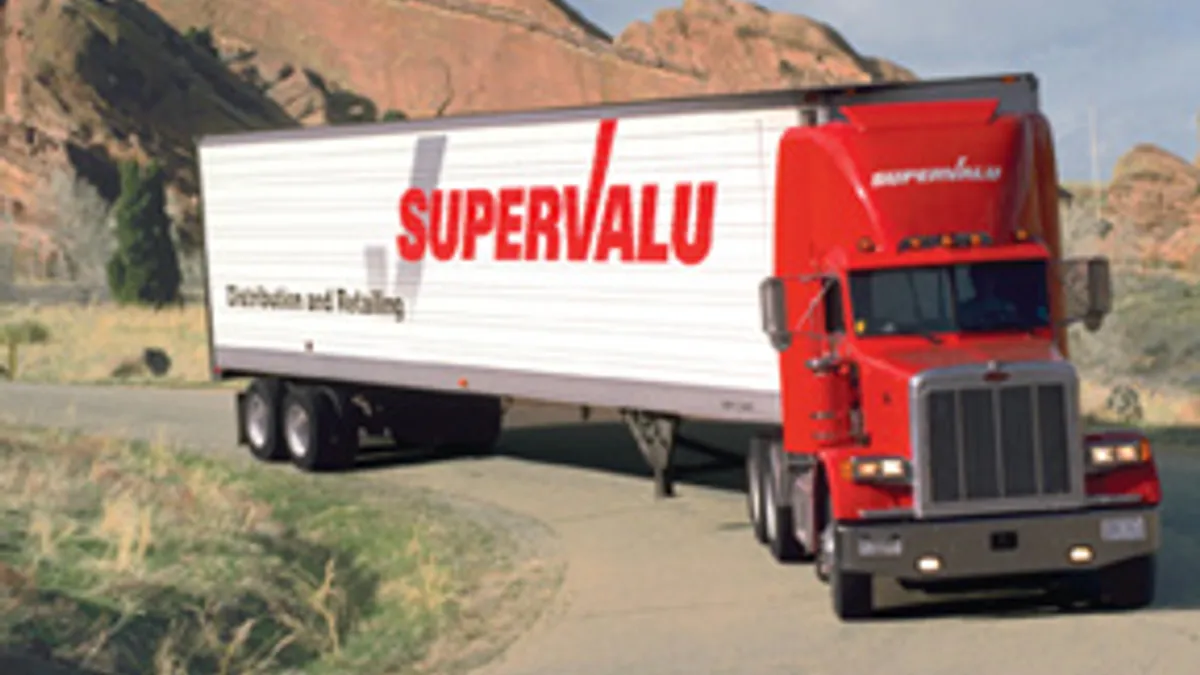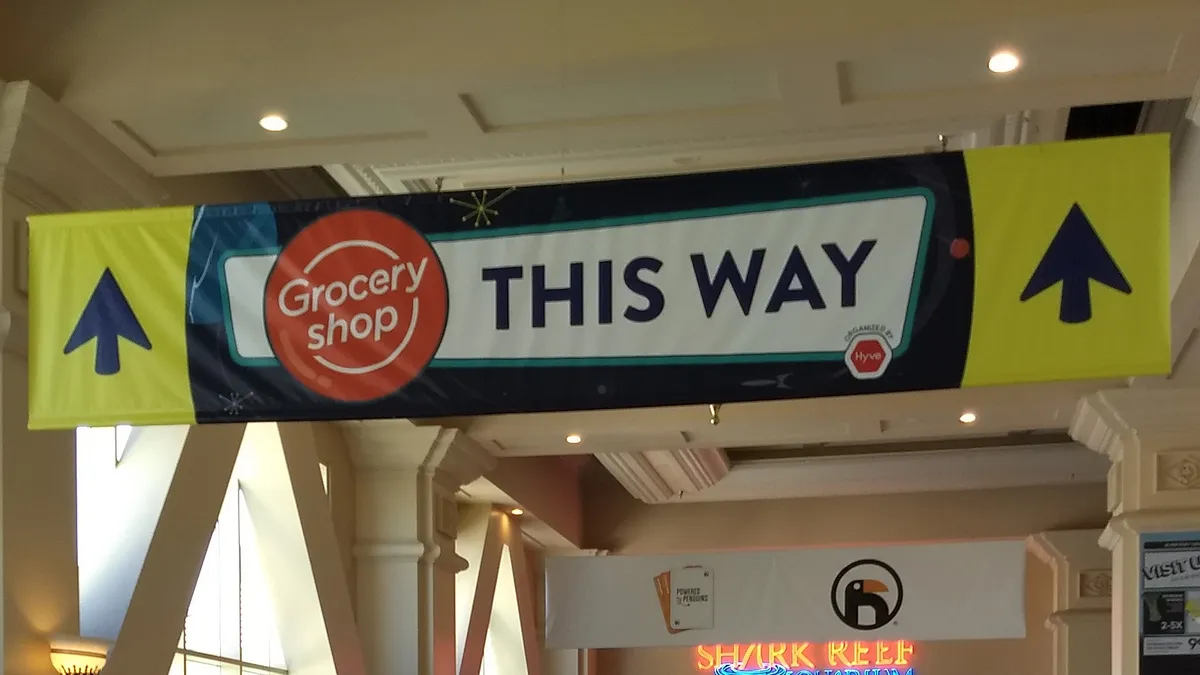Dive Brief:
- Supervalu chief financial officer Bruce Besanko will leave the company on July 5 to pursue other opportunities, according to The Wall Street Journal.
- Besanko’s resignation comes at a time when Supervalu, like many grocers, is fighting increasing competition in the industry and lingering price deflation. The retailer-wholesaler, which has sold off most of its retail locations over the past several years, saw its store margins narrow from 2.7% to 1.3% in the last financial quarter. Its wholesale margins rose from 2.9% to 3.6%.
- Looking to evolve its wholesale business, Supervalu this month updated its technology infrastructure, and last week closed its $390 million acquisition of Unified Grocers.
Dive Insight:
Besanko is the third grocery executive to resign his post in the past week. Last Tuesday, Southeastern Grocers’ Ian McLeod announced he was stepping down as CEO to pursue another opportunity: the new chief executive of Pan-Asian grocer Dairy Farm International. Also last week, The Fresh Market’s Rick Anicetti left the company’s top position after less than two years leading the natural and organic grocer. Tuesday morning news reports said Besanko will be the new CFO of department store chain Kohl's.
It’s hard not to see the industry pressures grocery retailers are facing right now as key factors in these resignations. Intense competition and price deflation have made it a tough industry to work in, and significant disrupters like Amazon, Lidl and Aldi threaten to increase the pressure for years to come. According to at least one notable industry analyst, increased competition and the threat of Lidl played a major role in McLeod’s and Anicetti’s resignations.
As a retailer-wholesaler that’s moving increasingly toward the wholesale side of the business, Supervalu isn’t in quite as tough of a position as others. Since 2012, The Journal notes, the company has reduced its retail store count from 1,500 to 220, mostly through the sale of its Save-A-Lot discount chain to private equity firm Onex Corp. In that same period, Supervalu has significantly grown its wholesale footprint, acquiring specialty distributors like Unified Grocers.
The company still has a significant number of retail stores, and they’re struggling. Margins have shrunk as locations have battled deflation and tough competitors in key markets. In Minnesota’s Twin Cities market, Hy-Vee has moved in on Supervalu’s Cub Foods with several high-performing locations, cutting into the chain’s leading market share. Cub has fought back with store remodels, but with several more Hy-Vees on the horizon, the company will have to fight hard to hold on to customers.
Supervalu will continue to battle in these and other retail markets as it expands on the wholesale end of the business. Looking at the broader industry, more executive departures may be on the horizon as competition continues to heat up and the price wars involving Walmart, Aldi and Lidl make their presence felt. As Mark Strong, Supervalu’s CEO said at a recent conference, “The market is ever increasingly competitive and the competition is not lessening.”










